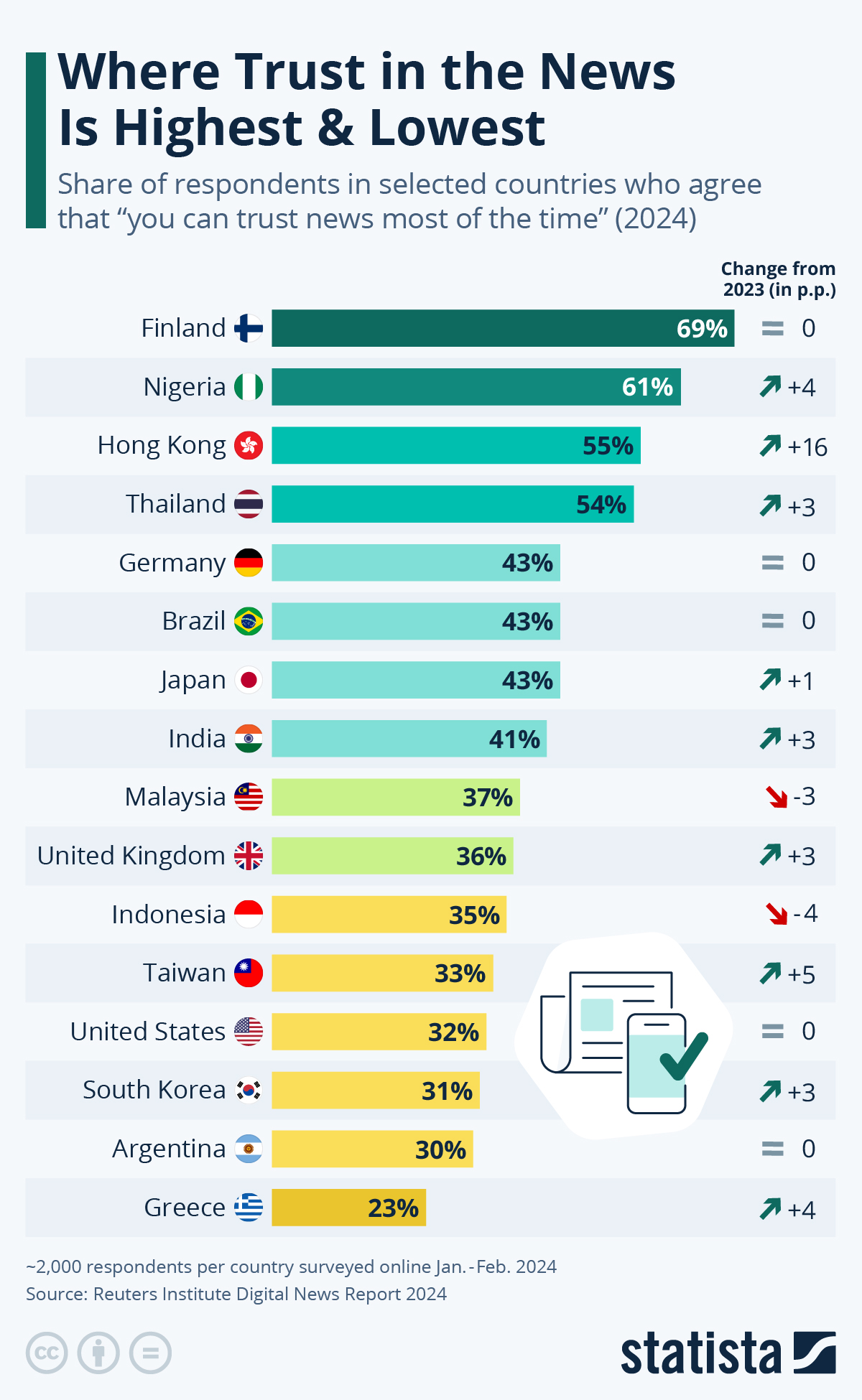Media: which countries believe the mainstream media, and which believe them less

Every year, the Reuters Institute for the Study of Journalism publishes a report on digital news consumption.
As Statista's Anna Fleck reports, the latest edition, based on a YouGov survey of more than 95,000 people in 47 countries and territories, documents how overall trust in news has remained stable compared to this time last year, raising the question : Have we finally hit rock bottom? Will trust in the mainstream media rise again now? Which countries have the greatest trust?
About four in ten of the total sample say they trust most news, most of the time.
Among the countries examined, Finland remains the country with the highest level of trust (69%), while Greece and Hungary (23%) have the lowest. Who knows why Greece, perhaps due to the experience during the debt crisis?
According to the report, the low trust scores found in countries such as the United States (32 percent), Argentina (30 percent) and France (31 percent) are partly attributable to high levels of polarization and divisive debates over politics and on the culture within their respective societies.
In Asia-Pacific, there is a fairly wide spectrum in trust levels, with Hong Kong gaining 16 percentage points from the previous year to 55 percent, the highest score in the region. This is despite many journalists having abandoned the profession, while a good portion of those who have chosen to remain admit to having resorted to self-censorship following the implementation of the National Security Law in 2020, meaning they can more easily be accused of 'secession', 'subversion', 'terrorism' and 'collusion with foreign organizations' for their services.
Indonesia (35%), Taiwan (33%) and South Korea (31%) rank at the bottom of the survey.
In Indonesia, the situation could get even worse, as the new Penal Code, which will come into force from January 2026, will contain 17 articles capable of threatening press freedom, including the ban on criticizing the President, the Vice President and the institutions state.
According to the report, the media in Taiwan is dominated by private companies, worsening divisions between pro-independence and pro-unification voices. Meanwhile, South Korea is facing an economic slowdown, which has seen advertising spending decline, while large online streaming platforms continue to fuel a decline in attention to news programming, leading to staff and cost cuts of production. South Korean media companies have also faced strong backlash following widespread news of a movie star taking his own life, with criticism the coverage fuels a culture of sensationalism.
It is important to note that the data shown in this graph is based on citizens' perceptions of the trustworthiness of media or news brands, and that these scores are aggregates of subjective opinions.
Analysts point out that this means changes over time are often influenced by “political and social factors, as well as the news itself.”

Thanks to our Telegram channel you can stay updated on the publication of new Economic Scenarios articles.
The article Media: which countries believe the mainstream ones, and which believe them less comes from Economic Scenarios .
This is a machine translation of a post published on Scenari Economici at the URL https://scenarieconomici.it/media-quali-paesi-credono-a-quelli-mainstream-e-quali-vi-credono-di-meno/ on Sun, 23 Jun 2024 13:20:31 +0000.

